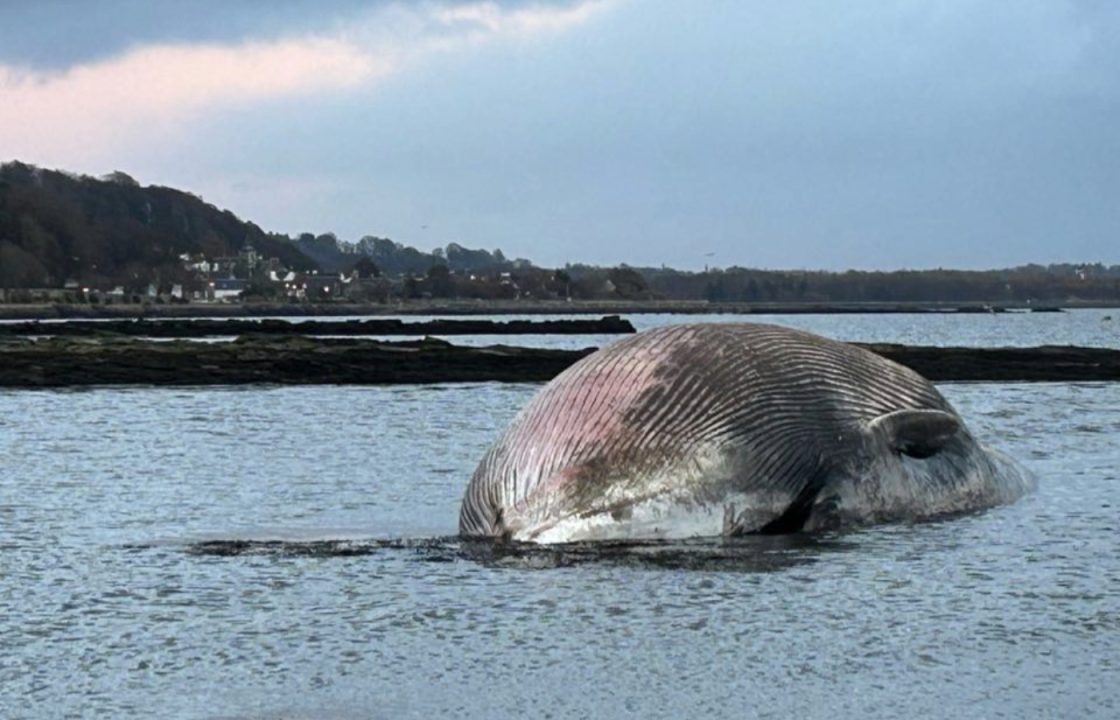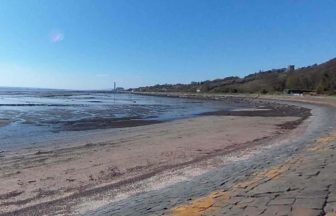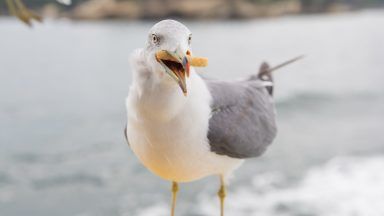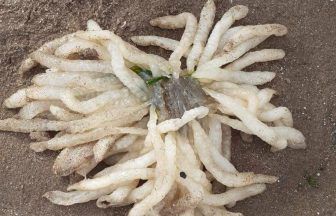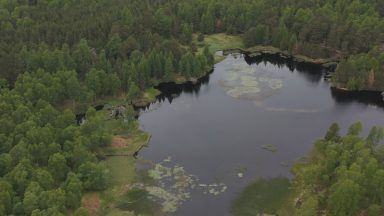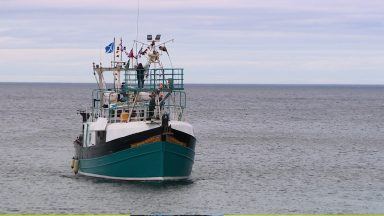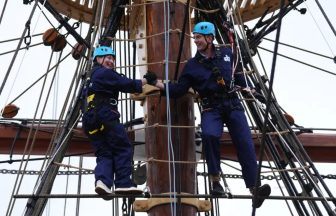An 18-metre dead whale has been found washed up on a Scottish shoreline by a member of the public.
The sad discovery was made by a walker on the shoreline in the village of Culross, Fife, around 4.30pm on Wednesday, January 24.
A member of the Culross Stables Community Hub captured images footage of the whale which was still in place in on Thursday.
The onlooker first assumed it to be a boat before discovering the 18-metre adult male Fin whale dead on the shoreline.

They told STV News: “At first I thought it was an upturned boat but I watched it drift in.
“There was also a load of seagulls flying around it which made me think it might be a whale.
“I took a walk along the shoreline and confirmed it to sadly be a dead whale.
“I thought the tide may have carried it away but it remains in same position this morning.”
Teams from Fife Coast and Countryside Trust carried out an on site assessment but say a final decision will not be made until next week.
Methods of disposing the whale include potential burial, towing it to sea or transporting the carcass to landfill or by incinerating it.
They are advising the public not to access the shoreline.
Robbie Blyth, the Trust’s head of operations said: “Due to the whale’s large size and location a final decision will not be made until next week on what action will be taken to dispose of the whale.
“Strategies for disposal include burying the body, transporting it to a landfill or incinerator or towing it out to sea.”
Two bottlenose whales were found stranded on the same coastline in 2023 with teams from British Divers Marine Life Rescue (BDMLR) and the South Queensferry coastguard attending.
Post-mortem examinations were due to take place by the Scottish Marine Animal Stranding Society (SMASS).
Danny Groves from Whale and Dolphin Conservation said: “It is always distressing to see such an awesome ocean creature like a large whale looking helpless on the shoreline.
“It is believed that this whale is a fin – the second largest creature on our shared planet, but what caused he or she to strand like this will only be known after tests on samples taken from the whale.
“Sometimes we never discover exactly, but many manmade threats can cause them to wash up dead or alive.
“These include loud underwater noise pollution from exploration for oil and gas or military exercises in the area, collisions with boats, and entanglement in fishing nets or gear.

“Some may get disorientated whilst following prey or simply fall ill.
“What makes this incident all the more tragic is that we need more whales alive to keep the ocean healthy.
“Growing whale populations helps us in our fight against climate breakdown because they help deliver and circulate nutrients in the ocean.
“For example, it is estimated that by restoring blue whales to their pre-whaling numbers would have the same positive impact on the climate as planting more than 280 million trees.”
The British Divers Marine rescue were made aware of the incident.
The Scottish Marine Animal Stranding Scheme has been contacted for comment.
Follow STV News on WhatsApp
Scan the QR code on your mobile device for all the latest news from around the country


